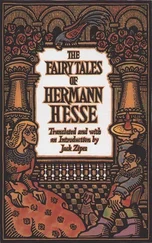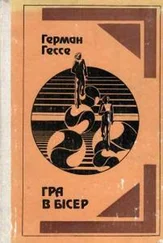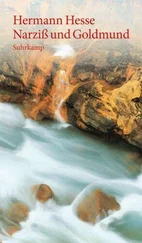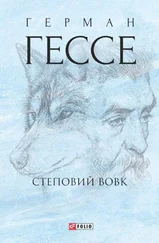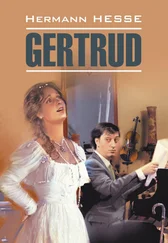More motionless than a tree, whose leaves and twigs stir in respiration, motionless as the stone image of a god, the yogi sat before his hut; and from the moment he had seen him the boy too remained motionless, fascinated, fettered, magically attracted by the sight. He stood staring at the Master. He saw a spot of sunlight on his shoulder, a spot of sunlight on one of his relaxed hands; he saw the flecks of light move slowly away and new ones come into being, and he began to understand that the streaks of light had nothing to do with this man, nor the songs of birds and the chatter of monkeys from the woods all around, nor the brown wild bee that settled on the sage’s face, sniffed at his skin, crawled a short distance along his cheek, and then flew off again, nor all the multifarious life of the forest. All this, Dasa sensed, everything the eyes could see, the ears could hear, everything beautiful or ugly, engaging or frightening — all of it had no connection at all to this holy man. Rain would not chill or incommode him; fire could not burn him. The whole world around him had become meaningless superficiality. There came to the princely cowherd an inkling that the whole world might be no more than a breath of wind playing over the surface, a ripple of waves over unknown depths. He was not conscious of this as a thought, but as a physical quiver and slight giddiness, a feeling of horror and danger, and at the same time of intense yearning. For this yogi, he felt, had plunged through the surface of the world, through the superficial world, into the ground of being, into the secret of all things. He had broken through and thrown off the magical net of the senses, the play of light, sound, color, and sensation, and lived secure in the essential and unchanging. The boy, although once tutored by Brahmans who had cast many a ray of spiritual light upon him, did not understand this with his intellect and would have been unable to say anything about it in words, but he sensed it as in blessed moments one senses the presence of divinity; he sensed it as a shudder of awe and admiration for this man, sensed it as love for him and longing for a life such as this man sitting in meditation seemed to be living. Strangely, the old man had reminded him of his origins, of his royalty. Touched to the quick, he stood there on the edge of the fern thicket, ignoring the flying birds and the whispered conversations of the trees, forgetting the forest and the distant herd, yielding to the spell while he stared at the sage, captivated by the incomprehensible stillness and impassivity of the man, by the bright serenity of his face, by the power and composure of his posture, by the complete dedication of his service.
Afterward he could not have said whether he had spent two or three hours, or days, at the hut. When the spell released him, when he noiselessly crept back between the ferns, found the path out of the woods, and finally reached the open meadows and the herd, he did so without being aware of what he was doing. His soul was still entranced, and he did not really come to until one of the herdsmen called him. The man was angry with him for having been away so long, but when Dasa only stared at him in wide-eyed astonishment, as if he did not understand what was being said to him, the herdsman broke off, disconcerted by the boy’s strange look and solemn bearing. “Where have you been, my boy?” he asked. “Have you seen a god by any chance, or run into a demon?”
“I was in the woods,” Dasa said. “Something drew me there; I wanted to look for honey. But then I forgot about it because I saw a man there, a hermit, who sat lost in meditation or prayer, and when I saw the way his face glowed I could not help standing still and watching him for a long time. I would like to go again this evening and bring him gifts. He is a holy man.”
“Do so,” the herdsman said. “Bring him milk and sweet butter. We should honor the holy men and give them what we can.”
“But how am I to address him?”
“There is no need to address him, Dasa. Only bow and place the gifts before him. No more is needed.”
Dasa did so. It took him a while to find the place again. The clearing in front of the hut was deserted, and he did not dare go into the hut itself. He therefore laid his gifts on the ground at the entrance and left.
As long as the herdsmen remained with the cows in this vicinity, Dasa brought gifts every evening, and once he went there by day again. He found the holy man deep in meditation, and this time too felt impelled to stand there in a state of bliss, receiving those rays of strength and felicity that emanated from the yogi.
Long after they had left the neighborhood and were driving the herd to new pastures, Dasa remembered his experience in the forest. And as is the way of boys, when he was alone he sometimes daydreamed of himself as a hermit and practitioner of yoga. But with time the memory and the dream faded, all the more so since Dasa was now rapidly growing into a strong young man who threw himself with zest into the sports and brawls of his fellows. But a gleam, a faint inkling remained in his soul, a suggestion that the princely life and the sovereignty he had lost might some day be replaced by the dignity and power of yoga.
One day, when they had come to the vicinity of the capital, they heard that a great festival was in preparation. Old Prince Ravana, bereft of his former strength and grown quite frail, had appointed the day for his son Nala to succeed him.
Dasa wanted to go to the festival. He wished to see the city once more, for he had only the faintest memories of it from his childhood. He wanted to hear the music, to watch the parade and the tournament among the nobles; and he also wanted to have a look at that unknown world of townsfolk and magnates who figured so largely in tales and legends, for he knew, although this was only a tale or legend or something even more insubstantial, that once upon a time, ages ago, their world had been his own.
The herdsmen were supposed to deliver a load of butter to the court for the festival sacrifices, and to his joy Dasa was one of the three young men chosen by the chief herdsman for this task.
They brought their butter to the palace on the eve of the festival. The Brahman Vasudeva received it from them, for it was he who had charge of the sacrifices, but he did not recognize the youth. Then the three herdsmen joined the throngs attending the celebrations. Early in the morning they watched the beginning of the sacrifices under the Brahman’s direction. They saw the masses of shining golden butter given to the flames, watched as it was transformed into leaping fire; flickering, its light and fatty smoke soared toward the Infinite, a delight to the thrice-ten gods. They watched the elephants leading the parade, their riders in howdahs with gilded roofs. They beheld the flower-decked royal carriage containing the young Rajah Nala, and heard the mighty reverberations of the drums. It was all very magnificent and glittering and also a little ridiculous, or at least that is how it seemed to young Dasa. He was stunned and enraptured, intoxicated by the noise, by the carriages and caparisoned horses, by all the pomp and extravagance; he was also delighted by the dancing girls who cavorted in front of the royal carriage, their limbs slender and tough as lotus stems. He was astonished at the size and beauty of the city, but still and all he regarded everything, in the midst of his excitement and pleasure, with the sober good sense of the herdsman who basically despises the townsman.
That he himself was really the firstborn, that his stepbrother Nala, whom he had forgotten completely, was being anointed, consecrated, and hailed in his stead, that he himself, Dasa, ought by rights to be riding in the flower-decked carriage — such thoughts did not even occur to him. On the other hand, he took a strong dislike to this Nala; the young man seemed to him stupid arid mean in his self-indulgence, unbearably vain and swollen with self-importance. He would rather have liked to play a trick on this youth acting the part of rajah, to teach him a lesson; but there was surely no opportunity for anything of the sort, and in any case he quickly forgot all about it, for there was so much to see, to hear, to laugh at, to enjoy. The townswomen were pretty and had pert, alluring looks, movements, and turns of speech. A good many phrases were flung at the three herdsmen which rang in their ears for a long while afterward. These phrases were called out with overtones of mockery, for townsfolk feel about herdsmen just the way herdsmen do about townsfolk: each despises the other. But still and all those handsome, stalwart young men, nourished on milk and cheese and living under the open sky almost all the year, were much to the liking of the townswomen.
Читать дальше

